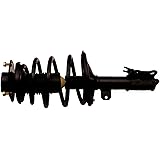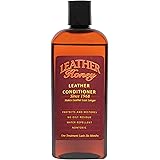Table of Contents
That sudden, sharp, sour odor that hits your nose when you turn on the air conditioning is more than just an unpleasant surprise. If you’ve found yourself asking, “why does my car AC smell like vinegar?” you are not alone. This common issue is a telltale sign that something is amiss within your vehicle’s climate control system. Far from being a mere inconvenience, that pungent vinegar-like smell is often a cry for help from a system battling moisture and microbial growth.
This comprehensive guide will not only demystify the root causes of this unpleasant odor but will also provide you with a detailed, step-by-step action plan to eliminate it, ensure your health is protected, and prevent it from ever returning.
The vinegar smell is almost never a sign of an actual vinegar spill. Instead, it’s a symptom of an environment within your car’s HVAC (Heating, Ventilation, and Air Conditioning) system that has become a breeding ground for bacteria, mold, or mildew. Understanding the “why” is the first and most crucial step toward a permanent solution.
Left unaddressed, the issue can worsen, leading to potential health concerns and more expensive repairs down the line. This article will serve as your ultimate resource, covering everything from quick DIY cleaning methods to recognizing when it’s time to call in a professional.
The Primary Culprit: Microbial Growth in Your HVAC System
Overwhelmingly, the most common cause of a vinegar-like smell emanating from your car’s vents is the growth of microorganisms like bacteria, mold, and mildew . But how do these unwelcome guests get there?
Your car’s air conditioning system works, in part, by dehumidifying the air. As warm air passes over the cold evaporator core, moisture condenses on its surface, much like water droplets form on a cold glass of lemonade on a hot day. This moisture is supposed to drain out of the system through a dedicated drain tube and exit underneath your car. However, when this process is disrupted, it creates a perfect storm for microbial growth.
The evaporator core, located deep within your dashboard, is a dense network of fins and tubes that stays damp during and after AC operation. When combined with organic matter like pollen, dust, and other airborne debris that gets pulled into the system, this dark, damp, and cool environment becomes a five-star hotel for bacteria and mold colonies. As these microbes metabolize the debris, they can release microbial volatile organic compounds (mVOCs), which often produce sour, musty, or vinegar-like odors that get blown directly into the cabin .
Other Potential Causes for the Vinegar Smell
While microbial growth is the chief suspect, other issues can mimic a vinegar smell or contribute to the environment that allows it to thrive.
A Clogged or Dirty Cabin Air Filter
The cabin air filter is your car’s first line of defense against external pollutants. It traps dust, pollen, leaves, and other debris before they enter the HVAC system. When this filter becomes clogged and saturated, it not only restricts airflow but can also become a source of odor itself. The trapped organic material can get damp and begin to decompose and foster mold growth, producing a sour smell that is then circulated throughout the car . A filter that has outlived its usefulness can be the sole cause of the odor or a significant contributing factor.
A Blocked AC Drain Tube
As mentioned, the condensate from the evaporator core needs to escape. This is the job of the drain tube. If this tube becomes clogged with dirt, leaves, or other debris, the water has nowhere to go. Instead of draining, it pools at the bottom of the HVAC case, surrounding the evaporator core in standing water. This drastically accelerates mold and bacterial growth and is a leading cause of persistent, strong odors . A telltale sign of a clogged drain is a wet carpet, particularly on the front passenger side floor.
Lingering Debris and Spills
Sometimes, the source of the odor isn’t within the deep HVAC components. Decomposing leaves in the fresh air intake vents (usually located at the base of the windshield) or spilled drinks that have seeped into the cabin’s carpet or vents can produce a sour, vinegar-like smell as they break down . It’s worth thoroughly cleaning the cabin and checking the air intake area for any obvious blockages.
Refrigerant Leaks (Less Common)
In rarer cases, a leak of the AC system’s refrigerant can produce a chemical smell that some describe as sweet or pungent, which could be misinterpreted as vinegar-like . This is often accompanied by a more significant performance issue: your AC will stop blowing cold air. Diagnosing and repairing a refrigerant leak is a job for a professional technician, as the chemicals involved are hazardous and require special handling .
Table: Diagnosing the Vinegar Smell in Your Car AC
Is a Vinegar-Smelling AC Dangerous to Your Health?
A faint, occasional odor might be more of an annoyance than a threat. However, a strong, persistent vinegar smell should not be ignored. While the odor itself isn’t toxic, it signals the presence of active mold or bacterial colonies. Breathing in air circulated through a contaminated system can pose health risks, especially for individuals with allergies, asthma, or other respiratory conditions .
Exposure to mold spores can trigger a range of symptoms, including:
- Headaches and dizziness
- Nasal congestion, sneezing, and itchy eyes
- Throat irritation and coughing
- Worsening of asthma symptoms
For the sake of your comfort and your health, addressing the root cause of the smell is imperative. It is not enough to simply mask the odor with air fresheners.
Your Step-by-Step Guide to Eliminating the Vinegar Smell
Tackling the vinegar odor can range from simple, do-it-yourself tasks to jobs that require a professional. Follow this progression to diagnose and solve the problem.
DIY Methods You Can Try Today
For many drivers, the solution can be found in their own garage with minimal tools and cost.
Replace the Cabin Air Filter
This is the easiest, cheapest, and most effective first step. Located typically behind the glove box or under the dashboard, the cabin air filter is a common culprit.
- Consult your owner’s manual for the location and replacement procedure for your specific vehicle.
- Purchase a high-quality replacement filter. Some come with an activated carbon layer designed to absorb odors.
- Remove the old filter and inspect it. If it’s dirty, clogged, or has a musty smell, installing the new one may immediately resolve the issue .
The Disinfectant Spray Treatment
If a new filter doesn’t solve the problem, the mold is likely growing directly on the evaporator core. You can often address this with a disinfectant spray.
- Start with the engine running and all windows rolled down for ventilation.
- Set the HVAC system to fresh air mode (recirculation off), with the fan on high and the AC turned off. Locate the exterior air intake (usually at the base of the windshield).
- Spray a generous amount of an EPA-registered disinfectant spray (like Lysol) or a product specifically designed for automotive AC systems directly into the air intake for 20-30 seconds . The fan will pull the spray through the system and onto the evaporator core, killing the microbes.
- Let the fan run for several more minutes to dry the system. Important Note: Do not use white vinegar for this process, as it is corrosive to certain metals and rubbers in the HVAC system and its fumes can be harmful when heated .
Drying Out the System
Prevention is key. Get into the habit of drying out your AC system to prevent moisture buildup. A few minutes before you reach your destination, turn off the AC compressor but leave the fan running on high. This blows ambient air over the evaporator, drying its surface and depriving mold of the damp environment it needs to thrive .
When to Call a Professional Mechanic
If the DIY methods fail to eliminate the smell, or if you notice signs of a more serious issue, it’s time to seek professional help.
Persistent Odors After DIY Cleaning
If the vinegar smell returns quickly or is unaffected by your efforts, the microbial growth may be too extensive for a surface spray to handle. A professional mechanic has the tools and expertise to perform a more thorough cleaning.
Signs of a Blocked Drain Tube
If you have a wet passenger-side floor, this strongly indicates a clogged drain tube. A technician can easily locate and clear this tube, allowing the system to drain properly again .
Performance Issues with the AC
If your AC is no longer blowing cold air, this points to a mechanical problem like a refrigerant leak or a failing compressor. These issues require specialized equipment and certified training to diagnose and repair safely .
Warranty Coverage and Consumer Rights
A common point of frustration for owners of newer vehicles is whether a smelly AC is covered under the factory warranty. The answer is: it depends.
Many automakers classify cabin air filters as “wear items” or “maintenance parts” (like tires and brake pads), meaning they are not covered under the standard bumper-to-bumper warranty. Therefore, the cost of a simple filter replacement would fall to the owner.
However, if the smell is determined to be the result of a design flaw or a defective component—such as a faulty evaporator core or a poorly designed drain system—the repairs should be covered. There is documented precedent for this; some manufacturers have even issued Technical Service Bulletins (TSBs) for specific models regarding AC odors, leading dealers to cover the cost of cleaning and repairs under warranty .
Forum discussions, particularly for brands like Tesla, show that warranty coverage for this issue can be inconsistent, with some service centers covering the repair as a “one-time goodwill gesture” while others charge the customer . If your new car develops this smell, it is crucial to:
- Report the issue to your dealer as soon as possible.
- Politely but firmly reference that this is a known issue (if you have found evidence online) and request coverage under warranty.
- Escalate to the manufacturer’s customer service if the dealer is uncooperative.
Long-Term Prevention: Keeping the Smell Away for Good
The battle against a smelly AC is won through consistent habits. Integrate these practices into your driving routine to prevent a recurrence.
- Practice the “Dry-Out” Method: Make it a habit to turn off the AC a few minutes before you stop driving while leaving the fan on high. This is the single most effective preventative measure you can take.
- Replace Your Cabin Air Filter Regularly: Don’t wait for a smell to appear. Follow your vehicle manufacturer’s recommended replacement interval, typically every 15,000 to 30,000 miles, or more often if you drive in dusty or polluted conditions.
- Use Recirculation Mode Sparingly: The recirculation mode traps humid air from inside the cabin and recools it, increasing the moisture load on the evaporator. Use it only when necessary, such as when driving through heavy traffic fumes.
- Consider an Annual AC Service: Many repair shops offer an AC cleaning service that includes disinfecting the evaporator core and ensuring the drain tube is clear. An annual service, perhaps each spring before the heavy-use season, can keep your system fresh and efficient.
- Keep the Interior Clean and Dry: Avoid leaving wet items like umbrellas, towels, or gym clothes in the car, as they contribute to the overall humidity and can become sources of odor themselves .
Summary and Key Takeaways
A vinegar smell from your car’s AC is a common but solvable problem. It is primarily caused by mold or bacteria growing on the damp evaporator core, often exacerbated by a clogged cabin air filter or a blocked drain tube. While DIY methods like replacing the filter and using a disinfectant spray are effective first steps, persistent odors or performance issues warrant a visit to a professional mechanic. For new cars, warranty coverage may be available, though you may need to advocate for it. By adopting simple preventative habits, you can ensure your car’s interior remains a fresh and healthy environment for every journey.
Key Takeaways
- The #1 Cause is Mold: The vinegar smell is almost always due to microbial growth on your AC system’s evaporator core, fueled by trapped moisture .
- Start Simple: Your first action should always be to inspect and replace the cabin air filter, a cheap and easy fix that often solves the problem .
- Disinfect with Care: Using a disinfectant spray like Lysol in the air intake can kill surface mold, but avoid using white vinegar, which can damage system components .
- Prevent with a Dry Evaporator: Make it a habit to run the fan without the AC for the last few minutes of your drive to dry out the system and prevent mold from returning .
- Know When to Get Help: A wet passenger floor or a lack of cold air are clear signs you need a professional mechanic to clear a drain tube or repair a refrigerant leak .
- Advocate for Warranty Coverage: If your car is new, push to have the issue addressed under warranty, especially if you find evidence of a known manufacturer flaw .























































